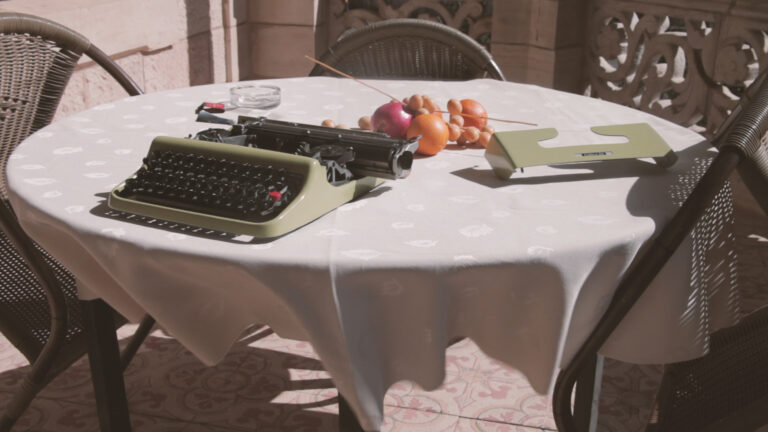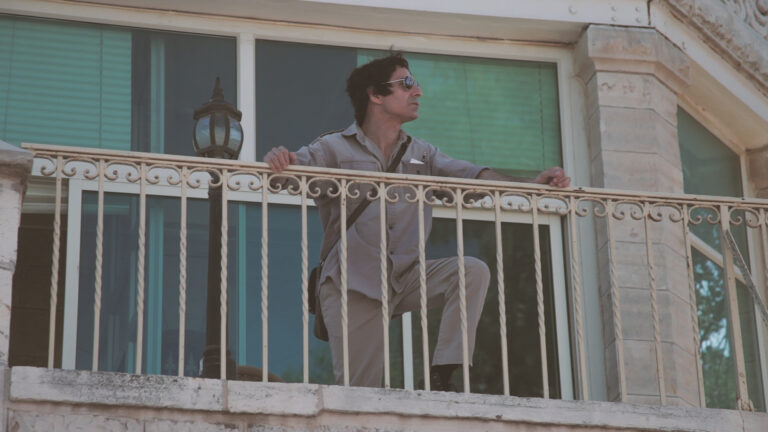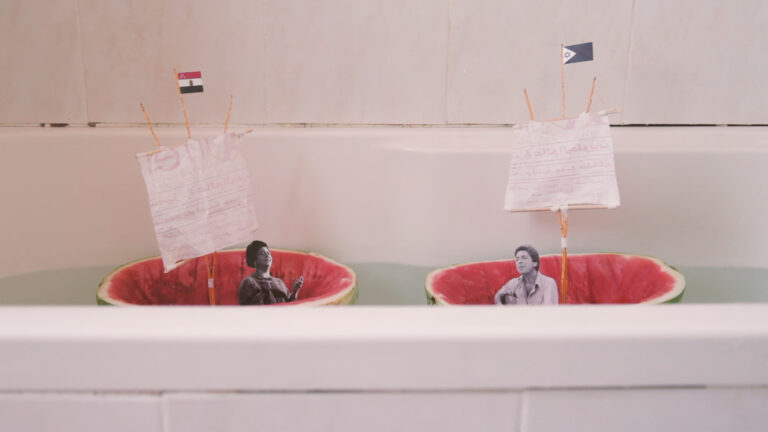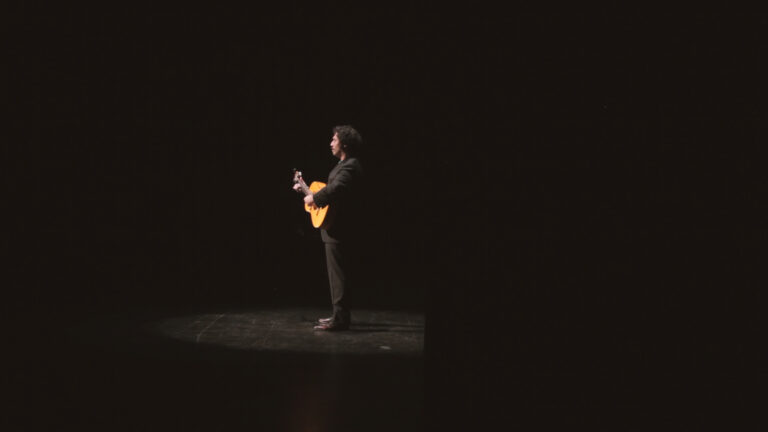Michael Rakowitz
I’m good at love, I’m good at hate, it’s in between I freeze
Michael Rakowitz is an Iraqi-American artist based in Chicago. His Arabic-Jewish heritage deeply informs his work, which centres on connecting people, places, and historical narratives across centuries. His subjects span from ancient Middle Eastern kingdoms to contemporary political situations.
Rakowitz’s third solo exhibition at Galerie Barbara Wien explores the relationship between art and politics through a personal narrative, presenting the artist’s project I’m good at love, I’m good at hate, it’s in between I freeze in a new iteration. Centring around a concert that never happened, the project originated from Rakowitz’s long-standing interest in the work and life of the late Canadian singer-songwriter and poet, Leonard Cohen.
In 2009, Cohen was scheduled to perform two concerts: one in Tel Aviv, Israel, and one in Ramallah, Palestine. Cohen had a large fan base in Palestine, but the concert in Ramallah was seen as an attempt to pacify a potential backlash against the concert in Israel and was thus considered a hollow symbolic gesture of solidarity. The performance in Palestine was boycotted and ultimately cancelled. As a Leonard Cohen fan, and a signatory of the Palestinian Campaign for the Academic and Cultural Boycott of Israel (PACBI), Rakowitz started researching Cohen’s stance on the conflict in the region. Questioning whether art can obliterate politics, he was intrigued by the constructive potential of boycotts. Considering his identity as a person of Arab-Jewish descent, Rakowitz contemplated the implications of staging Cohen’s Ramallah concert himself. He found Cohen’s old Olivetti typewriter on eBay, bought it, and started typing out a screenplay about the concert in Palestine that never happened. He then decided to write a letter to the singer, asking permission to perform his songs in Ramallah, but Cohen never replied.
In 2015 the Musée d’art contemporain de Montréal invited Rakowitz to complete the project as part of an exhibition responding to Cohen’s work. I’m good at love, I’m good at hate, it’s in between I freeze took the form of a film co-directed by Robert Chase Heishman. The film delves into Cohen’s complex relationship with the Jewish homeland, exploring the historical context and aftermath of the concert that never happened.
Although approved for the exhibition, Cohen’s estate grew increasingly displeased with the film during the show, accusing Rakowitz of presenting a one-sided (pro-Palestinian) account of the story. After Cohen’s death in 2016, his estate refused further permission for Rakowitz to use Cohen’s music outside the context of the Montréal show unless the film was changed to include the story as told by Cohen’s manager. Rakowitz declined to alter the film accordingly and withdrew from the exhibition tour.
For this new exhibition, Rakowitz continues his project, I’m good at love, I’m good at hate, it’s in between I freeze, taking into account the pressures that have been exerted on the work and what has been lost along the way. The artist invited colleagues to speak about the estate’s refusal to permit the further use of Cohen’s songs in the film’s original form. Rakowitz’s instrumentals of Cohen’s music have been replaced with new compositions made especially for this film by Bill MacKay, a Chicago-based composer, improvisor, guitarist, and writer. The adapted film is accompanied by an installation of documents, books, photographs, and memorabilia connected to the project, including Cohen’s typewriter and a facsimile of the letter Rakowitz wrote to the singer.
A separate presentation of works from Rakowitz’s series The invisible enemy should not exist (2007 – ongoing) are on display in our showroom across the courtyard. The project attempts to create full-size reappearances of artefacts which were destroyed or looted from the National Museum of Iraq in Baghdad during the US-led invasion in 2003, or from archeological sites and museums sacked by ISIS in the aftermath of the war. Drawing on resources from the University of Chicago and Interpol, Rakowitz and his studio reappear individual objects out of commercial packaging produced in West Asia and available in the diaspora, as well as Arabic-English newspapers distributed in Arabic grocery stores throughout the US. On view in the showroom are papier maché reappearances of wall reliefs from the destroyed palace in Nimrud as well as a collection of cylinder seals. The objects are accompanied by museum labels listing archeological information about the original artefacts including their status, which is either destroyed, looted, or unknown.
Michael Rakowitz (b. 1973, New York, US) lives and works in Chicago. His work has appeared in venues worldwide including at dOCUMENTA (13), Kassel; the 16th Sydney Biennial; the 10th and 14th Istanbul Biennials; the 8th, 14th and 15th Sharjah Biennials; the Cleveland Triennial; Kiasma, Helsinki; Palais de Tokyo, Paris; Victoria & Albert Museum, London; MoMA, New York; Van Abbemuseum, Eindhoven. He has had solo exhibitions at Frac Lorraine, Metz; Malmö Konsthall; Tate Modern, London; MCA, Chicago, among others. From 2019–2020, a survey of Rakowitz’s work travelled from Whitechapel Gallery in London, to Castello di Rivoli Museo d’Arte Contemporanea in Turin, to the Jameel Arts Centre in Dubai. He is the recipient of the 2020 Nasher Prize; the 2018 Herb Alpert Award in the Arts; a 2012 Tiffany Foundation Award; a 2007 Sharjah Biennial Jury Award; a 2006 New York Foundation for the Arts Fellowship Grant; the 2003 Dena Foundation Award; and the 2002 Design 21 Grand Prix from UNESCO. Rakowitz was awarded the 2018–2020 Fourth Plinth commission in London’s Trafalgar Square. He has an upcoming solo exhibition at Baltic Centre for Contemporary Art in Gateshead, opening July 15, 2023.
Film Credits:
Co-Director and Editor—Robert Chase Heishman
Actor (Leonard)—Marc Joseph Berg
Voiceovers—Lama Altakruri, Emily Jacir, Eyal Weizman
Original Music—Bill MacKay




